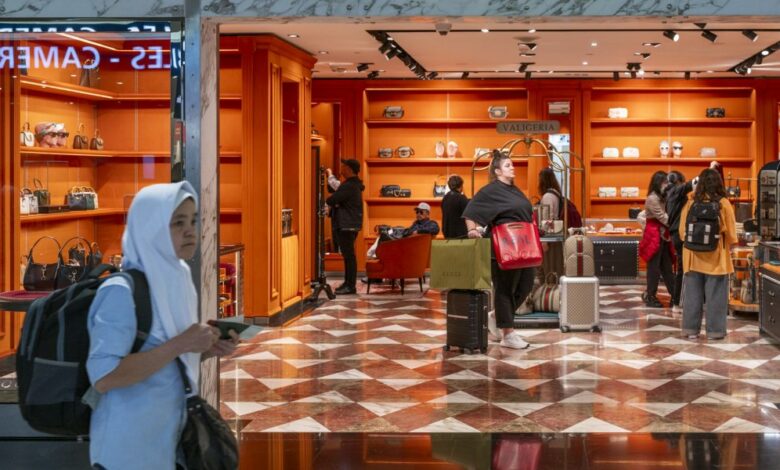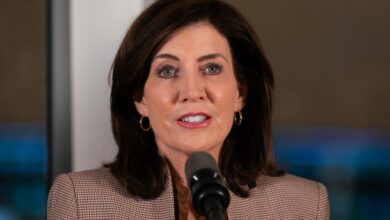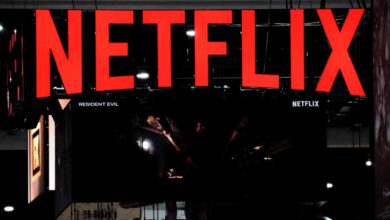Gucci, YSL owner Kering issues profit warning as luxury sales stall


The luxury boom of the pandemic era has turned into a bust, hurting some of the industry’s most prominent players.
The latest victim is Gucci and Yves Saint Laurent’s French owner, Kering.
In a rare and ominous note issued a month ahead of Kering’s first quarter results for the year, the company flagged that its sales will decline by roughly 10% compared to 2023. It gets worse if you zoom in—Kering’s biggest brand, Gucci, could see revenue decline by 20% year-over-year in the first quarter.
That’s a steep drop for the company—but it isn’t a huge anomaly given the rough year the French luxury retailer had.
Kering cited the stalling demand for luxury goods, particularly in the Asia-Pacific region, as the reason for the unexpected drop.
The luxury slowdown has been widely discussed, and many examples of the trend have emerged. Demand from Chinese shoppers has been a shared trouble for all luxury brands as they were banking on the rebound of its economy to spur more high-end spending. That hasn’t played out like brands had hoped, although there are initial signs of recovery.
Asia’s luxury appetite aside, big players, including French conglomerate LVMH and bag maker Hermes, have managed to defy a slump after initial stumbles. But others haven’t fared nearly as well.
Take Burberry, for example—the British trench-coat company has seen sales dip in recent times. In January, it lowered its full-year profit forecast after seeing lackluster demand during the peak holiday season, when luxury sales are typically booming. Kering’s warning reaffirms that the luxury industry is still miles away from seeing a recovery—let alone another boom.
The Paris-based luxury fashion giant’s shares were down 13.6% on Wednesday at 12 noon London time.
Representatives at Kering didn’t immediately return Fortune‘s request for comment.
Reigniting the Gucci brand
In its annual report last month, Kering flagged that 2024 would remain a challenging year due to macroeconomic pressures and its investments to bolster the Gucci brand.
The iconic label, responsible for half of Kering’s annual sales, suffered as its rivals bolted forward when consumers splurged on luxury, losing valuable business and market share.
“Gucci does not resonate enough with the more valuable affluent consumers because it never really had to and never managed to close the gap,” Flavio Cereda, co-investment manager of the GAM Luxury Brands Investment Strategy at GAM Investments, said in a February note sent to Fortune.
“In the last 4 years, Gucci has been suffering from decisions taken during the pandemic to protect margins instead of investing in marketing to fuel growth as other key players did in
the sector. This strategy reversal has been welcomed by investors,” HSBC analysts wrote in a note following Kering’s full-year results released in February.
However, change may be on the horizon. Gucci is in the midst of a transformation under a new management and creative director, Sabato De Sarno. His “Ancora” collection has been available at select stores since last month, and is expected to help chart Gucci’s path forward.
The luxury industry has also entered a period of normalization now, the analysts highlighted, which means the first half of the year will seem dull, especially when compared to the same period a year ago.
“Gucci does have significant potential: the supply chain is strong, the heritage is very solid, the retail network is global and cash generation is still meaningful. But there is no obvious short-term catalyst at this time,” Cereda said.
Source link




